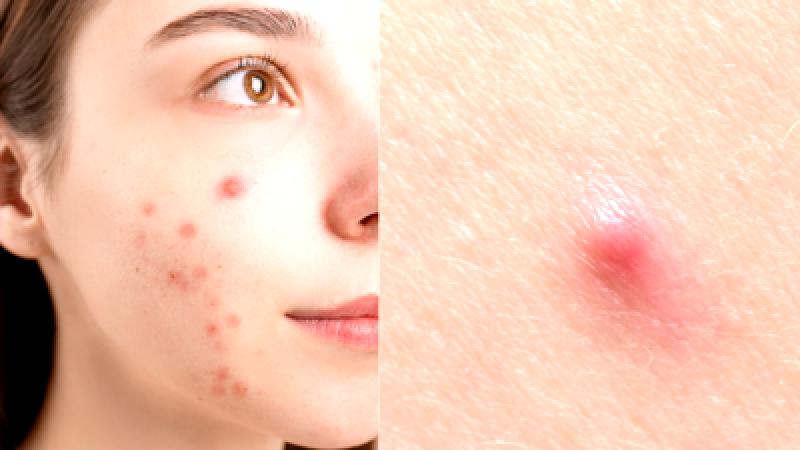
Pimples and acne are often used interchangeably but have distinct differences. Acne is a chronic skin condition characterized by persistent red, inflamed bumps known as pimples. These can vary from mild whiteheads to severe cysts that may cause lasting scars. Pimples are a symptom of acne and can occur on various body parts like the face, back, chest, and shoulders.
The underlying cause of acne involves pores getting clogged with excess sebum, dead skin cells, and pollutants. This can occur at any age and is not restricted to the face. Factors contributing to acne include hormonal changes, excess sebum production, clogged pores, bacterial growth, and inflammation caused by various triggers.
Pimples manifest in different types such as whiteheads, blackheads, cysts, and nodules, each with unique characteristics.Papules: Small, pink bumps that may feel tender to the touch. Pustules: Bumps filled with pus that can be painful and inflamed. Comedones: Small bumps that may be flesh-colored and can be open (blackheads) or closed (whiteheads).Causes of Pimples: Hormonal Changes, Excess Sebum, and Sensitive SkinHormonal shifts, increased sebum production, and sensitivity of the skin can all contribute to the development of pimples. Here's how each factor plays a role:- Hormonal changes: Variations in estrogen and testosterone levels can trigger acne during puberty, menstruation, pregnancy, or menopause.- Excess sebum production: Genetics, stress, or certain medications can stimulate an overproduction of sebum, which can clog pores and cause inflammation.- Sensitive skin types: Oily or dry skin can elevate the chances of developing pimples due to clogged pores or irritation.Battling Acne and Pimples: A Skincare Regimen for Healthy SkinA regular skincare routine is essential for managing acne and pimples. Follow these tips to promote healthy, glowing skin:- Use a mild, oil-free facial cleanser containing salicylic acid, glycolic acid, or benzoyl peroxide.- Regularly exfoliate to eliminate dead skin cells and unclog pores.- Choose non-comedogenic products to prevent pore blockages.- Refrain from picking or popping pimples to avoid scarring and infection.- Keep your hands off your face to prevent the transfer of bacteria and oils.- Stay hydrated and maintain a balanced diet for optimal skin health.By gaining insight into the causes and varieties of pimples and adhering to a consistent skincare regimen, you can lessen the occurrence of acne and pimples and achieve clear and radiant skin. Try a 7-day collagen-rich diet for a healthy and glowing complexion.











